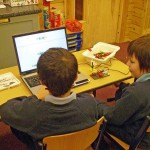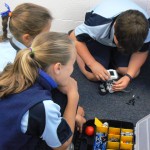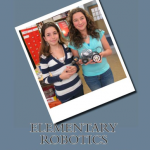The Social Skills Network is made up of of students and their teachers engaged at school and online in Science, Technology, Engineering and Mathematics using LEGO EV3 challenges. It is made up of Robotics Social Clubs from six schools and colleges from Brisbane Catholic Education. The students enjoy connecting with like-minded people, learning programing skills and completing robotics challenges.
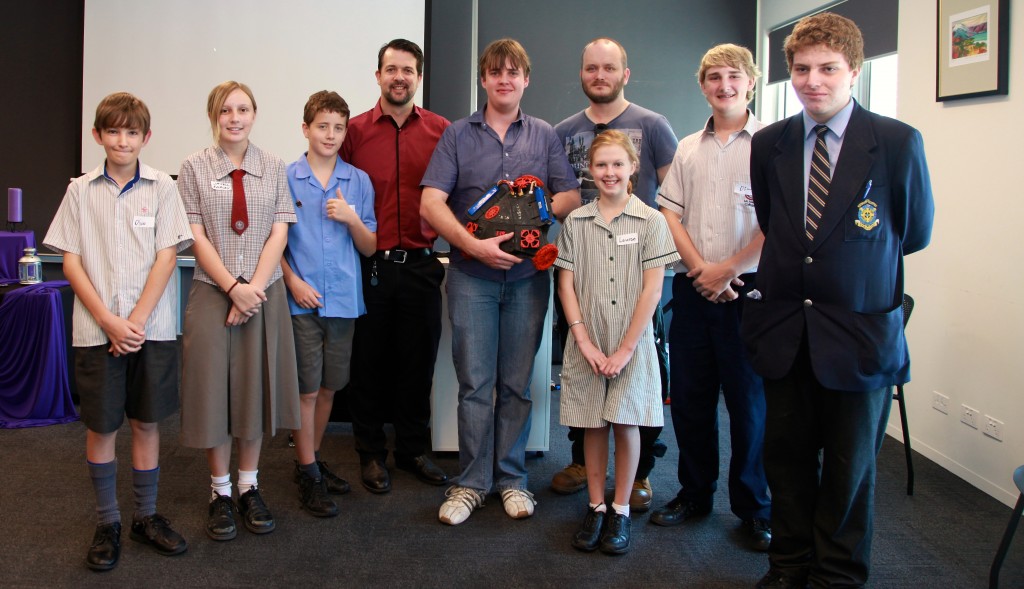
Why?
Let me tell you the true story of a young man called Harrison. Harrison had just started high school and wanted friends but didn’t really know how to act or make friends or what to say to his peers. In fact one of the reasons this was hard for him was because Harrison has Autism. One day Harrison decided to show some boys in his class something cool he could do. He showed them how he could navigate around the school computer network and securities, create a bogus account and download inappropriate computer games. As this was pretty inappropriate the school took away Harrison’s laptop. Now while I can understand the thinking behind what the school did, HARRISON NEEDS HIS LAPTOP, he just needs to learn to use his programing positively and learn how to connect with others and work as part of a team. And it was not just Harrison who needed this, it was a gifted student at the school, a couple of girls his age and others interested in the same type of things.
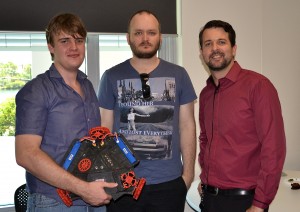
What?
So we set up a LEGO Robotics Social Club after school. We used engaging robotics challenges as a way of teaching social and teamwork skills to all of the students. During these after school sessions we supported a teacher to experiment with the LEGO EV3 Software and modeled good pedagogy. It was extremely successful from both the teacher’s and the students’ point of view. All of the students really gelled as a group and learned a lot about design and digital technology. The teacher learned about teaching robotics to engage students and ended up using it in his physics class. Oh, and Harrison got his computer back and made some friends who were interested in the same things as him.
How?
- We identified Harrison, who was interested in technology, and then invited anyone else in his year level that was interested in robotics. This included typical students, gifted students, students with Autism and anyone else who wanted to come. We purchased enough EV3 resources for 12 students to share core sets in pairs and threes.
- Then we organized eight after-school sessions and sent letters home to parents. On each of the after-school sessions we focused on a different social skill and used robotics challenges of increasing difficulty to demonstrate those skills. Students rated their own performance on the social skill using some self assessment checklists. The teacher had an opportunity to learn how to use the EV3 robots and the software. Before long, that teacher was using LEGO EV3 robots in their classroom teaching.
- Then we moved on to the next school and found a similarly socially isolated student and set up a Robotics Social Club at his high school. We currently have six active Robotics Social Clubs using EV3 resources.
We have now got each of the schools together and have built Robotics Club Online to keep schools connected and engaged with LEGO robotics challenges.
Why not create an EV3 robotics challenge, send us a link, and we will upload it to our site for other students to solve?
What next…
We are now working on developing an evidence-based resource kit designed to provide schools across Australia with the know-how to run this intervention effectively and assist in developing the social skills of all students in a natural mainstream school setting. Brisbane Catholic Education is a participant in the Cooperative Research Centre for Living with Autism Spectrum Disorders (Autism CRC), which will be supporting the research of Robotics Social Clubs and their application in mainstream environments.
Jay Hobbs, Education Consultant (Autism Spectrum Disorders)
Brisbane Catholic Education
